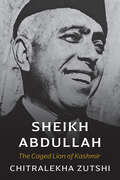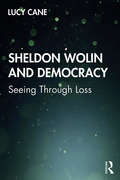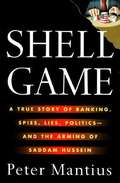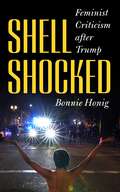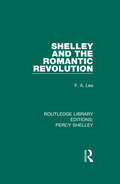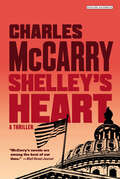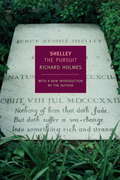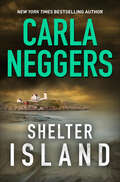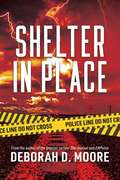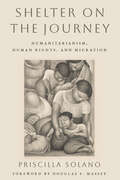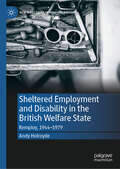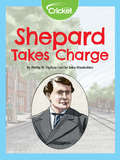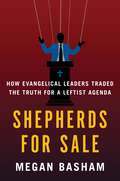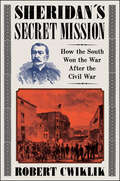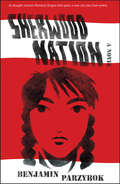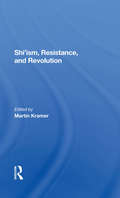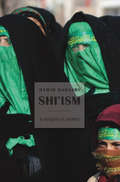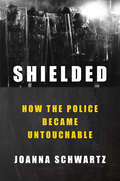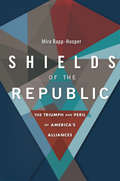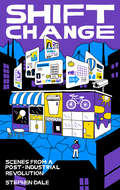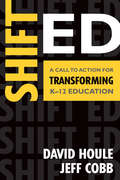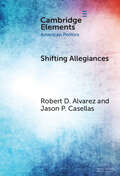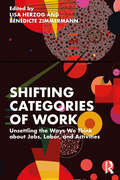- Table View
- List View
Sheikh Abdullah: The Caged Lion of Kashmir
by Chitralekha ZutshiA compelling biography of Sheikh Abdullah, the charismatic, combative, and controversial Kashmiri politician Written by the leading historian of modern Kashmir, this is a comprehensive portrayal of one of the most enigmatic politicians in modern South Asia, Sheikh Muhammad Abdullah, known as the Lion of Kashmir. Abdullah (1905–1982) devoted much of his life to mobilizing Kashmiris to assert their rights, to trying to achieve a fair resolution for their politically contested state, to shaping its turbulent relationship with India, and to bridging the divide between India and Pakistan. Although he forged ties with the Indian National Congress, Abdullah&’s support for Kashmir&’s accession to India and his advocacy for a more autonomous position for the state within the Indian Union complicated his relationship with India and led to his fall from grace, arrest, and imprisonment. In 1975 he reached a compromise with India that alienated generations of Kashmiris for whose self-determination he had long fought. The people of Kashmir, India, and Pakistan continue to grapple with and contest his legacy. Zutshi&’s rigorously researched and elegantly crafted biography brings this complex figure to life and offers a window onto the political fissures of twentieth-century South Asia more broadly.
Sheldon Wolin and Democracy: Seeing Through Loss
by Lucy CaneLucy Cane presents the first full-length study of Sheldon Wolin (1922–2015), an influential theorist of democracy and prescient critic of "inverted totalitarianism" in the United States. She traces the development of Wolin’s thinking over sixty years, offering an overarching interpretation of his central preoccupations and shifts in perspective. Framed around themes of loss and mourning, this is not only an intellectual biography, but also a critical engagement of Wolin’s work with democratic theory more broadly and an assessment of its value for addressing contemporary crises of democracy. Cane brings Wolin into conversation with other contemporary theorists, from Chantal Mouffe to Edward Said, as well as with his direct intellectual influences. She argues that his mournful tendencies continue to offer unique insight into the potential loss of local democratic cultures in an era of neoliberal precarity. At the same time, she questions whether his politics of mourning can adequately grasp the dynamics of democratic coalition-building or the value of new political movements and ideas. Sheldon Wolin and Democracy remedies a lack of interpretive studies of this key thinker, connects divergent strands of contemporary theory, and addresses urgent democratic dilemmas. It is a must read for all political theorists and others in the academy and beyond who seek to conceptualize the fate of democracy amidst the rise of right-wing populist movements in the twenty-first century.
Shell Game
by Peter MantiusAtlanta journalist tells the story of the arming of Saddam Hussein, financial scandal and the complicity of the U.S. government in all of it.
Shell-Shocked: Feminist Criticism after Trump
by Bonnie HonigA biting, funny, up-to-the-minute collection of essays by a major political thinker that gets to the heart of what feminist criticism can do in the face of everyday politics.Stormy Daniels offered a #metoo moment, and Anderson Cooper missed it. Conservatives don’t believe that gender is fluid, except when they’re feminizing James Comey. “Gaslighting” is our word for male domination but a gaslight also lights the way for a woman’s survival.Across two dozen trenchant, witty reflections, Bonnie Honig offers a biting feminist account of politics since Trump. In today’s shock politics, Honig traces the continuing work of patriarchy, as powerful, mediocre men gaslight their way across the landscape of democratic institutions.But amid the plundering and patriarchy, feminist criticism finds ways to demand justice. Shell-Shocked shows how women have talked back, acted out, and built anew, exposing the practices and policies of feminization that have historically been aimed not just at women but also at racial and ethnic minorities. The task of feminist criticism—and this is what makes it particularly well-suited to this moment—is to respond to shock politics by resensitizing us to its injustices and honing the empathy needed for living with others in the world as equals. Feminist criticism’s penchant for the particular and the idiosyncratic is part of its power. It is drawn to the loose threads of psychological and collective life, not to the well-worn fabrics with which communities and nations hide their shortcomings and deflect critical scrutiny of their injustices. Taking literary models such as Homer’s Penelope and Toni Morrison’s Cee, Honig draws out the loose threads from the fabric of shock politics’ domination and begins unraveling them. Honig’s damning, funny, and razor sharp essays take on popular culture, national politics, and political theory alike as texts for resensitizing through a feminist lens. Here are insightful readings of film and television, from Gaslight to Bombshell, Unbelievable to Stranger Things, Rambo to the Kavanaugh hearings. In seeking out the details that might break the spell of shock, this groundbreaking book illustrates alternative ways of living and writing in a time of public violence, plunder, and—hopefully—democratic renewal.
Shelley and the Romantic Revolution (RLE: Percy Shelley #3)
by F.A. LeaFirst published in 1945. In this work the author seeks to correct the misinterpretation and incorrect labelling of Shelley’s thought. While not neglecting Shelley as a poet, this book focuses on his contributions made to the general movement of political and philosophical thought of his era and by so doing his relevance to contemporary issues. This title will be of interest to students of literature.
Shelley's Heart: A Thriller
by Charles McCarryA contested presidential election leads to a national crisis in this &“masterful political thriller . . . loaded with intrigue and counter-intrigue&” (Richard Condon, author of The Manchurian Candidate). At the dawn of the twenty-first century, the CIA has been disbanded and a secret society has taken hold of powerful positions across Washington. After a long and contentious campaign, President Bedford Lockwood is celebrating his reelection. But the revelry is cut short when it&’s discovered that his over-zealous aides may have tampered with the vote. On the eve of the Inauguration, Lockwood&’s rival—the archconservative Franklin Mallory—presents evidence of fraud. When Lockwood refuses to take the oath of office, it sets in motion a series of events that may destroy him, his party, and the Constitution. From this catastrophic crisis, acclaimed author and former Washington journalist Charles McCarry weaves a smart, tense, and eerily prescient political thriller.&“Not only exceptionally suspenseful but also unnervingly realistic….gripping and intricate.&” —The Washington Post
Shelley: The Pursuit
by Richard HolmesShelley: The Pursuit is a most apt title as this is indeed a biography that goes on the chase to bring together all manner of opinions; both contemporary and historical to weave together the short chaotic life of the poet Percy Bysshe Shelley.
Shelter Island: Bougainvillea Shelter Island Capsized (Cold Ridge #Null)
by Carla NeggersA Boston woman seeking refuge finds herself trapped on an island with madman in the New York Times–bestselling author’s romantic suspense.Dr. Antonia Winter has a feeling she’s being stalked. It seems like someone is using her to derail her boyfriend Hank Callahan’s senate campaign. To escape the threatening emails and mysterious whispers, Antonia leaves Boston for a wildlife sanctuary off the Cape. A ramshackle cottage on this desolate coastal island should be the perfect refuge . . .But Antonia is being followed. And now she has placed herself in even greater danger. With a powerful hurricane looming, Hank arrives is determined to bring her back. When the power cuts out and they’re trapped on the island, they face two terrifying fates: either the hurricane will get them—or an obsessed madman will.
Shelter in Place
by Deborah D. MooreThe government is after someone, but who—and why? A riveting manmade disaster thriller from the author of the popular The Journal and EMPulse series. As the small resort town of Kapac, Ohio, prepares for their annual August festivities, another preparation is underway of a more malicious nature. A suspicious toxic spill on the only road in or out, by unknown agents, quarantines the town and threatens not only its livelihood, but also its very life. Shut off from everything, nearly a thousand trapped residents—with only a limited local food supply—lose power, and with that, city water and sewage, and then communications. The government is the only entity powerful enough to pull this off, but why? Who are they after?Undersheriff Casey WhiteCloud has his hands full when he is the only law left in town during the incident. When a serial killer emerges, the scared, hungry, and increasingly angry population turns on each other.And then the heat gets turned up. Literally. And people start to die.
Shelter on the Journey: Humanitarianism, Human Rights, and Migration
by Priscilla SolanoMigration journeys are arduous, with migrants tormented by risk, abuse, threats, and xenophobia. Shelters, staffed by humanitarian workers and volunteers, provide safe spaces for those in transit. Shelter on the Journey examines how these sites, often faith-based civil society associations, create solidarity and help politicize migrants, giving them a sense of themselves as an empowered, rights-holding people. Solano, who volunteered at shelters in Mexico, chronicles the activity in three of the nearly 100 shelters along a unique humanitarian trail that many Central Americans take to reach the United States. She outlines the constraints faced by these sites and their potential to create social transformation and considers how and why migration security is currently framed and managed as both a criminal and humanitarian issue. Shelter on the Journey explores the politics of the shelters, their social world, and the dynamics of charity and solidarity, as well as the need for humanitarian assistance and advocacy for dignified and free transit migration.
Sheltered Employment and Disability in the British Welfare State: Remploy, 1944–1979 (New Directions in Welfare History)
by Andy HolroydeThis book explores sheltered employment for disabled people in the British welfare state, focusing on Remploy as the flagship provider. It considers the fundamental areas of understanding Remploy, in terms of why it was created, how it functioned, who it employed, and how far it came to dominate the wider field of provision. The book further uses sheltered employment as a new lens through which to explore key aspects of the welfare state in the period. These include the creation of the post-war settlement; the extent of political consensus; the exclusion of disabled people from welfare and work; the role played by gendered thinking in the welfare state&’s provisions; and the relationship between the state and voluntary sectors. In so doing, it sheds new light on the history of disability, employment, and welfare in Britain.
Sheltering Strangers: Critical Memoirs from Hosting Ukrainian Refugees
by Daniel BriggsThis book documents the intimate lives of Ukrainians as they fled their homeland in search of a safe and stable place to stay. The critical memoirs follow the lives of 16 Ukrainian families in a small Spanish town near Madrid and the local families that volunteered to host them during a time of limited state support and an absence of a clear EU plan for the refugees. Through first-hand testimonies, social media messages and photographs, the book reveals the scarring realities of the Ukrainians’ upheaval, displacement and trauma alongside the well-meaning sacrifices made by the host families which quickly mutate into moralistic and meritocratic expectations of their new guests. In doing so, the book offers a vivid portrayal of how the tensions of war and displacement play out in real life in real time.
Shepard Takes Charge
by Philip W. OgilvieMove America's capital to another city? To Alexander Robey Shepherd, the solution to Washington, DC's problems was clear: modernization. Shepherd took on the monumental task of improving roadways and drinking water, adding street gaslights, and planting trees.
Shepherds for Sale: How Evangelical Leaders Traded the Truth for a Leftist Agenda
by Megan Basham“This may just be the single most important book on modern Evangelicalism in recent years. It is bold, clear, and very well-researched.”—John MacArthurHow deeply have leftist billionaires infiltrated America’s churches?In Shepherds for Sale, Megan Basham of the Daily Wire documents how progressive powerbrokers —from George Soros, to the founder of eBay, to former members of the Obama administration— set out to change the American church. Their goal: to co-opt evangelicals for political purposes. She exposes:· The left-wing billionaires, foundations, and think tanks that deliberately target Christian media, universities, megachurches, nonprofits, and even entire denominations· The celebrity megachurch pastor who secretly encouraged a group of pastors to change their views on sexuality· The revered Presbyterian theologian who backed a congregation rebelling against his own denominationThese are just a glimpse into the compromises and astroturf campaigns Basham uncovers. Many evangelical leaders are pushing their members to “whisper” about sexual sins, reconsider the importance of abortion, lament the effects of climate change, and repent of “perpetuating systemic racism.” And in exchange for toeing a left-wing line, many of those church leaders and institutions have received cash, career jumps, prestige, and praise. Basham brings the receipts, and names names.A rigorously reported exposé, Shepherds for Sale is a warning of what happens when the church trusts the world’s wisdom instead of Scripture.
Sheridan's Secret Mission: How the South Won the War After the Civil War
by Robert CwiklikA deeply researched, narrative history recounting the little-known late–Reconstruction era mission of General Philip Sheridan, a Union Army hero dispatched to the South ten years after the Civil War to protect the rights of newly freed black citizens, who were under siege by violent paramilitary groups like the White League intent on erasing their postwar gains.In late 1874, nearly ten years after the Civil War, former slaves, or freedmen, found themselves under siege in the South by violent paramilitary groups like the White League, intent on erasing their newly won voting rights and other postwar gains and consigning them to a condition little better than slavery. President Ulysses S. Grant, vowing to enforce, “with rigor,” laws protecting the rights of former slaves, asked General Philip H. Sheridan to visit New Orleans and other Southern trouble spots to investigate the freedmen’s plight, all while pretending to be on vacation. Sheridan’s Secret Mission recounts the feisty Union war hero’s Southern sojourn amid tragic episodes of racial terror that ultimately fueled the overthrow of Reconstruction-era protections for black rights.Sheridan made a splash on his arrival in New Orleans on New Year’s Eve, accompanied by family and friends and proclaiming they were sightseers bound for Cuba. But a few days later, through trickery and force, Democrats seized control of the nearby state House of Representatives, apparently assisted by White League operatives, although the state’s majority black electorate had arguably put Republicans, the party of Lincoln and the freeing of the slaves, in control of the legislature.Federal soldiers stationed nearby ushered several Democrats out of the House chamber, and Sheridan publicly denounced the “spirit of defiance to all lawful authority” in Louisiana. He threatened to round up White League leaders to face trial before military tribunals. In years past, Northerners might have rallied to support the Union hero. But the public was weary of war issues. Many Northern newspapers condemned Sheridan’s actions and deplored the appearance of federal bayonets in a sovereign state legislature. Some called for Grant’s impeachment.The controversial clash in the Louisiana legislature lies at the heart of this revelatory new narrative history. Sheridan’s Secret Mission illuminates the bitter career of racial oppression in the United States and resonates powerfully with our contemporary “post-racial” condition.
Sherwood Nation
by Benjamin Parzybok"Parzybok does this thing where you think, 'this is fun!' and then you are charmed, saddened, and finally changed by what you have read. It's like jujitsu storytelling." Maureen F. McHugh, author of After the Apocalypse In drought-stricken Portland, Oregon, a Robin Hood-esque water thief is caught on camera redistributing an illegal truckload of water to those in need. Nicknamed Maid Marian real name: Renee, a twenty-something barista and eternal part-time college student she is an instant folk hero. Renee rides her swelling popularity and the public's disgust at how the city has abandoned its people, raises an army . . . and secedes a quarter of the city.Even as Maid Marian and her compatriots build their community one neighbor at a time, they are making powerful enemies amongst the city government and the National Guard. Sherwood is an idealistic dream too soon caught in a brutal fight for survival.Sherwood Nation is the story of the rise and fall of a micronation within a city. It is a love story, a war story, a grand social experiment, a treatise on hacking and remaking government, on freedom and necessity, on individualism and community. Benjamin Parzybok is the author of the novel Couch and has been the creator/co-creator of many other projects, including Gumball Poetry, The Black Magic Insurance Agency (city-wide, one night alternate reality game), and Project Hamad. He lives in Portland with the artist Laura Moulton and their two kids. He blogs at secret.ideacog.
Shi'ism, Resistance, And Revolution
by Martin Kramer Clinton Bailey Shaul Bakhash Michael M J FischerThe recent revival of interest in the Muslim world has generated numerous studies of modern Islam, most of them focusing on the Sunni majority. Shi'ism, an often stigmatized minority branch of Islam, has been discussed mainly in connection with Iran. Yet Shi'i movements have been extraordinarily effective in creating political strategies that have
Shi'ism: A Region of Protest
by Hamid DabashiFor a Western world anxious to understand Islam and, in particular, Shi’ism, this book arrives with urgently needed information and critical analysis. Hamid Dabashi exposes the soul of Shi’ism as a religion of protest—successful only when in a warring position, and losing its legitimacy when in power. Dabashi makes his case through a detailed discussion of the Shi’i doctrinal foundations, a panoramic view of its historical unfolding, a varied investigation into its visual and performing arts, and finally a focus on the three major sites of its contemporary contestations: Iran, Iraq, and Lebanon. In these states, Shi’ism seems to have ceased to be a sect within the larger context of Islam and has instead emerged to claim global political attention. Here we see Shi’ism in its combative mode—reminiscent of its traumatic birth in early Islamic history. Hezbollah in Lebanon claims Shi’ism, as do the militant insurgents in Iraq, the ruling Ayatollahs in Iran, and the masses of youthful demonstrators rebelling against their reign. All declare their active loyalties to a religion of protest that has defined them and their ancestry for almost fourteen hundred years. Shi’sm: A Religion of Protest attends to the explosive conflicts in the Middle East with an abiding attention to historical facts, cultural forces, religious convictions, literary and artistic nuances, and metaphysical details. This timely book offers readers a bravely intelligent history of a world religion.
Shielded: How the Police Became Untouchable
by Joanna SchwartzAn urgent and definitive examination of how the legal system prevents accountability for police misconduct, from one of the country's leading scholars on policingIn recent years, the high-profile murders of George Floyd, Breonna Taylor, and so many others have brought much-needed attention to the pervasiveness of police misconduct. Yet it remains nearly impossible to hold police accountable for abuses of power—the decisions of the Supreme Court, state and local governments, and policy makers have, over decades, made the police all but untouchable.In Shielded, University of California, Los Angeles, law professor Joanna Schwartz exposes the myriad ways in which our legal system protects police at all costs, with insightful analyses about subjects ranging from qualified immunity to no-knock warrants. The product of more than two decades of advocacy and research, Shielded is a timely and necessary investigation into why civil rights litigation so rarely leads to justice or prevents future police misconduct. Weaving powerful true stories of people seeking restitution for violated rights, cutting across race, gender, criminal history, tax bracket, and zip code, Schwartz paints a compelling picture of the human cost of our failing criminal justice system, bringing clarity to a problem that is widely known but little understood. Shielded is a masterful work of immediate and enduring consequence, revealing what tragically familiar calls for &“justice&” truly entail.
Shields of the Republic: The Triumph and Peril of America’s Alliances
by Mira Rapp-HooperIs America’s alliance system so quietly effective that politicians and voters fail to appreciate its importance in delivering the security they take for granted? For the first century and a half of its existence, the United States had just one alliance—a valuable but highly controversial military arrangement with France. Largely out of deference to George Washington’s warnings against the dangers of “entangling alliances,” subsequent American presidents did not consider entering another until the Second World War. Then everything suddenly changed. Between 1948 and 1955, US leaders extended defensive security guarantees to twenty-three countries in Europe and Asia. Seventy years later, the United States had allied with thirty-seven. In Shields of the Republic, Mira Rapp-Hooper reveals the remarkable success of America’s unprecedented system of alliances. During the Cold War, a grand strategy focused on allied defense, deterrence, and assurance helped to keep the peace at far lower material and political costs than its critics allege. When the Soviet Union collapsed, however, the United States lost the adversary the system was designed to combat. Its alliances remained without a core strategic logic, leaving them newly vulnerable. Today the alliance system is threatened from without and within. China and Russia seek to break America’s alliances through conflict and non-military erosion. Meanwhile, US politicians and voters are increasingly skeptical of alliances’ costs and benefits and believe we may be better off without them. But what if the alliance system is a victim of its own quiet success? Rapp-Hooper argues that America’s national security requires alliances that deter and defend against military and non-military conflict alike. The alliance system is past due for a post–Cold War overhaul, but it remains critical to the country’s safety and prosperity in the 21st century.
Shift Change: Scenes from a Post-industrial Revolution
by Stephen DaleHamilton’s industrial age is over. In the steel capital of Canada, there are no more skies lit red by foundries at sunset, no more traffic jams at shift change. Instead, an urban renaissance is taking shape. But who wins and who loses in the city’s not-too-distant future? Is it possible to lift a downtrodden, post-industrial city out of poverty in a way that benefits people across the social spectrum, not just a wealthy elite? In Shift Change, author Stephen Dale sets up “the Hammer” as a battlefield, a laboratory, a chessboard. As investors cash in on a real estate gold rush and the all-too-familiar wheels of gentrification begin to turn, there’s still a rare opportunity for both old-guard and newcomer Hamiltonians to come together and write a different story—one in which Steeltown becomes an economically diverse and inclusive urban centre for all. What plays out in these pages and at this very moment is a real-time case study that will capture the attention and the imagination of anyone interested in equitable redevelopment, housing activism, and social justice in the North American city.
Shift Ed: A Call to Action for Transforming K–12 Education
by David E. Houle Jeff T. CobbA comprehensive guide to transforming American schools Futurist David Houle and educational strategist Jeff Cobb issue a “call to action” to everyone who is concerned about education in America. He argues that reinventing our system is inevitable and we already have the information and capabilities to make the necessary changes. Shift Ed challenges us to ask the right questions, expand our vision, and take action now. The book includes an overview of the educational system and expert opinions on key areas, including: Technology and connectivity Organizational behavior Curriculum Learning and the brain Infrastructure and the physical plant
Shifted by the Winds (The Bregdan Chronicles #8)
by Jinny DyeHistorically, Book 8 of The Bregdan Chronicles, Shifted by the Winds, begins immediately after the Civil War ends. Though the Union victory is solid, and the slaves are freed, the turbulence continues. After President Lincoln's assassination, Vice President Johnson becomes President. His black-racist sympathies with the South allow plantation owners to force black slavery to continue under a flurry of convoluted laws. Moreover, deadly riots in southern cities sent a message: kill a black person and you will not be punished. Also, the threat of violence or death falls on any white person who helps blacks in any way. Because of this intense racism, the fictional characters have a difficult time. Everyone on Cromwell plantation is susceptible to this hatred. Thomas and Abbey are threatened for paying all factory workers the same despite their race or gender. Despite this racism, Rose and Marietta continue to educate former slaves. Carrie and Janie are finally in medical school in Pennsylvania, but things are rough in the North as well as in the South. Can the characters shift with the winds and fight for the desperately needed changes?
Shifting Allegiances: The Election of Latino Republicans to Congress and State Legislatures (Elements in American Politics)
by Jason P. Casellas Robert D. AlvarezShifting Allegiances provides a comprehensive analysis of the increasing presence and influence of Latino Republicans in Congress and state legislatures. Contrary to past assumptions, this Element reveals that Latino Republicans are a diverse group, no longer confined to Cuban Americans in South Florida. By examining election data and candidate characteristics since 2018, the authors uncover the factors contributing to the success of Latino Republicans, including district demographics, conservative values, and strategic campaigning. This shift in political dynamics highlights a broader trend of ideological realignment and offers insights into the evolving landscape of Latino political representation in the United States.
Shifting Categories of Work: Unsettling the Ways We Think about Jobs, Labor, and Activities
by Lisa Herzog Bénédicte ZimmermannWhat do human beings do when they work, how is work organized, and what are its multidimensional – economic, social, political, biographical, ecological – effects? We cannot answer these questions without drawing on the numerous categories that we use to describe work, such as "skilled" or "unskilled" work, "domestic work" or "wage labor," "gig work" or "platform work." Such categories are not merely theoretical labels as they also have practical effects. But where do these categories come from, what are their histories, how do they differ between countries, and how are they evolving? Shifting Categories of Work asks these questions, illuminating the many ways in which our societies categorize work. Written by sociologists, philosophers, historians and anthropologists as well as management and legal scholars, the contributions in this volume contrast different cultural practices and frameworks of categorizing work across different countries. Organized around the three axes of (un)organized work, (in)visible work and (in)valuable work, this book shows how ways of categorizing work express, but also recreate, lines of privilege and disadvantage – challenging our preconceived notions of what work is and what it could be, as it invites us to rethink the categories we use for understanding the work we do, and hence, to some extent, ourselves.
